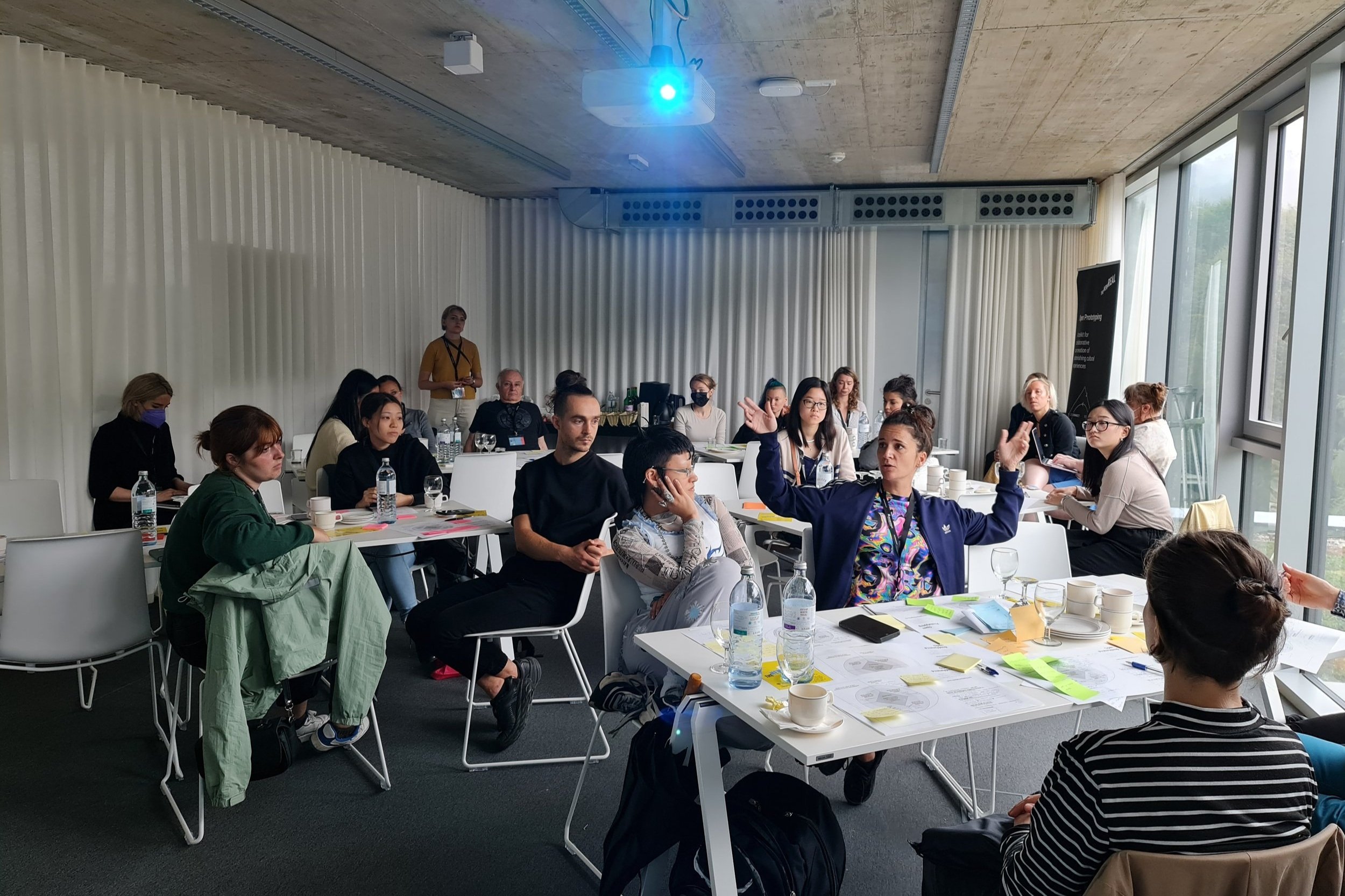Designing The New Real
Immerse yourself into The New Real and experience exciting and groundbreaking ideas for the arts and culture of tomorrow and help us define the agenda for future research and teaching in this area.
The New Real explores cutting-edge art and innovation shaping our world. We believe the arts can be at the forefront of new sustainable industries and economies, and illuminate how emerging technology can become a creative, playful and deeply impactful part of everyday living.
As part of this workshop we will devise imaginative ways to research and experiment with new experiences, practices, infrastructures and business models, and to empower people to be agents of positive change.
The New Real invites you to join this Friday morning workshop session followed by networking lunch.
Workshop Details
Free to attend
Followed by networking lunch
Format: In person
Audience: Academic, Cultural Sector, Science & Technology Sector
Registration: Spaces are limited so get in touch with us at newreal@ed.ac.uk to express your interest
Date: 10:00 - 12:00 Workshop, Friday 28th October
12:00 - 13:00 Lunch, Friday 28th October
Our Workshop
The workshop will explore New Real research themes and methodologies in the context of next generation intelligent experiences, and how art and technology need to develop to increase critical and planetary intelligence. How can we create delightful, luncheon artistic experiences that are: transparent, fair and sustainable; blending art and AI in a profound way; and co-created by humans and machines, rather than instrumentally employing AI and its hidden human labour?
The workshop will involve:
1. An introduction to The New Real Research Themes and Mechanisms.
2. Structured design sessions to shape your next project and connect to our themes
4. Discussion and networking.
5. Lunch will be provided for participants: refuel, reflect and connect
More Details about the Workshop
A combination of interactive activities and discussions will imagine, navigate and shape future landscapes for creative AI and the transformative shift arising from an emerging generation of AI technologies that directly engage audiences.
Together we will reflect on our current entanglements and share innovative ideas on how to flourish on a thriving planet in the midst of surprising, joyful, and inclusive forms of intelligent life.
A Friday lunchtime session before you depart to don your party clothes for The New Real Salon Opening Evening, we invite you to join us for some lunchtime conversations with our group and workshop participants to share your reflections on the future of AI and the Arts as we look ahead to transformative new directions in in this field.
This workshop is supported by facilitators from The New Real, and we invite you to contribute expertise, creatively brainstorm, and take part in steering the discourse toward the future landscape of creative AI-human collaboration for delightful, fair and environmentally sound audience experiences.
Workshop Facilitators
Drew Hemment is The New Real’s project principal investigator. He is an artist, designer and academic researcher, Chancellors Fellow at Edinburgh Futures Institute and Edinburgh College of Art and Research Fellow at The Turing.
Matjaz Vidmar is our co investigator, an interdisciplinary researcher, lecturer and strategist at the University of Edinburgh. He is an (Astro)Physicist by training, now examining innovation processes and (inter-)organisational learning and change, as well as other social dimensions of emerging technologies
Vassilis Galanos is based at the University of Edinburgh, currently finishing his doctoral thesis in which he investigates the role of expectations and issues of expertise in the research and development, policymaking, history, and public portrayals of artificial intelligence and robotics. His further academic interests include cybernetics, information science, and media studies.
Dr. Daga Panas is part of our science and technology team. She is a Data Scientist at the University of Edinburgh, working in the Data Science Unit for Science, Health, People, and Environment. She holds a PhD in Computational Neuroscience and an MSc in Physics and describes herself as an all-round-geek, when pressed to write in third person.





